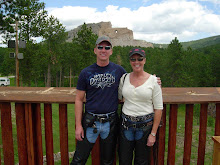It is with a mixed sense of interest and frustration that I note all the new miniature and board games using cards to control turn sequences and/or events.
What's old is new again...
I've long used cards in my games. Many, many years ago, I subscribed to the "PW Review", a mimeographed 8 1/2 x 11 stapled monthly newsletter that featured the ramblings of Wally Simon. Wally used cards for sequence management and action allocation, and I can't remember many of his homegrown rules that didn't use them.
I tinkered with The Sword and the Flame for a while - it had cards, after all! I could never force myself to like the red/black one unit at a time activiation. Too slow for my tastes, and it left most players to sit and watch.
Many moons ago - 12? 15? I can't even remember - Bob Jones moved back to Denver in a career move. I'm not sure how many out there know or have met Bob, but he NEVER thinks conventionally. Bob has to be one of the most creative thinkers and game designers to have ever have graced the wargame hobby. When I met Bob, he was just starting to tinker with concepts that would turn into Piquet, and the associated period supplements. Many years of debate followed, as control enthusiasts decried the randomness of Piquet and its turn sequencing using cards. "Too random!" "No control!" "It will never work!".
Well - work it did! Bob has since moved on to different methods of creative turn sequencing and action limitations in his Die Fighting and Zouave rules, and I've written the Field of Battle series of games, which had their genesis in Piquet.
I've never thought that Bob has ever received enough acclaim or recognition for his original and unique game designs.
Maybe imitation is the sincerest form of flattery? I now note that many new sets use cards (gasp!) - the new set by Sam Mustafa (another great designer) uses cards for turn sequencing; multiple boardgames use cards for events; even the new series of boardgames for Victory Point Games by Frank Chadwich appear to be using cards.
Anyway - having lived through the criticism of cards as a game mechanic, its interesting to note that the new and "hot" game mechanic is to use cards. Maybe next will be a realization of the fascinating and simple effects made possible by the use of multi-sided die types in a game....
Subscribe to:
Post Comments (Atom)

There are several different ways to deal with the slow activation of group TSatF games. We usually roll a die with each card draw, activating that many units. A method I plan to use the next time I run the game is to just let every player activate a unit on their card. British card comes up, each Brit player activates one unit. Native card, every native player activates a unit. I expect it to work well.
ReplyDeleteUp Front by Avalon Hill (RIP) is the ultimate card 'driven' wargame. I remember opening the box and being mildly disappointed by the contents or lack thereof as no board minimal counters and lots of cards. But once I played it !!! sheer genius.
ReplyDeleteI really liked the Last Crusade collectable card wargame (and indeed spent a small fortune on it !!)
Like yourself I had played a few miniatures games with some card (usually playing cards) interplay but it wasnt until Piquet appeared that cards became an integral part of a rule set and I have been hooked on concept ever since.
BUT a lot of wargamers dont like the randomness of card systems preferring a predictable phased sequence of play.
Me I like both but do prefer on balance games that engender chaos and narrative in the game (PK/FOB/IABSM etc) for which cards are so suitable.
As to the next great thing ? Bob Jones seem to think that iPads and similar are the future of wargames rules.
But long live the D6 I say :-)
Bob and I have never agreed about technology in wargames (tabletop games). I like the feel of cards, rolling dice, the charts....I would never give that up for a technology box that is cold and distant. Just my preference!
ReplyDeleteA way to think about the cards is that they give the GAME DESIGNER more control and the gamer less. Cards tend to set the pace of a game and are more event driven, where games without cards can drag on without good scenario design. Another way I think of cards is like a clock in sports, it can move the game along. I like the idea that I have to do the most I can with the cards I have in a game, thus, 'play the hand that is dealt you.'
ReplyDeleteI like cards, I did a Lasalle conversion with cards for unit activation and I wold like to see more games with cards and I did laugh when I looked at Maurice.
ReplyDeleteJohn